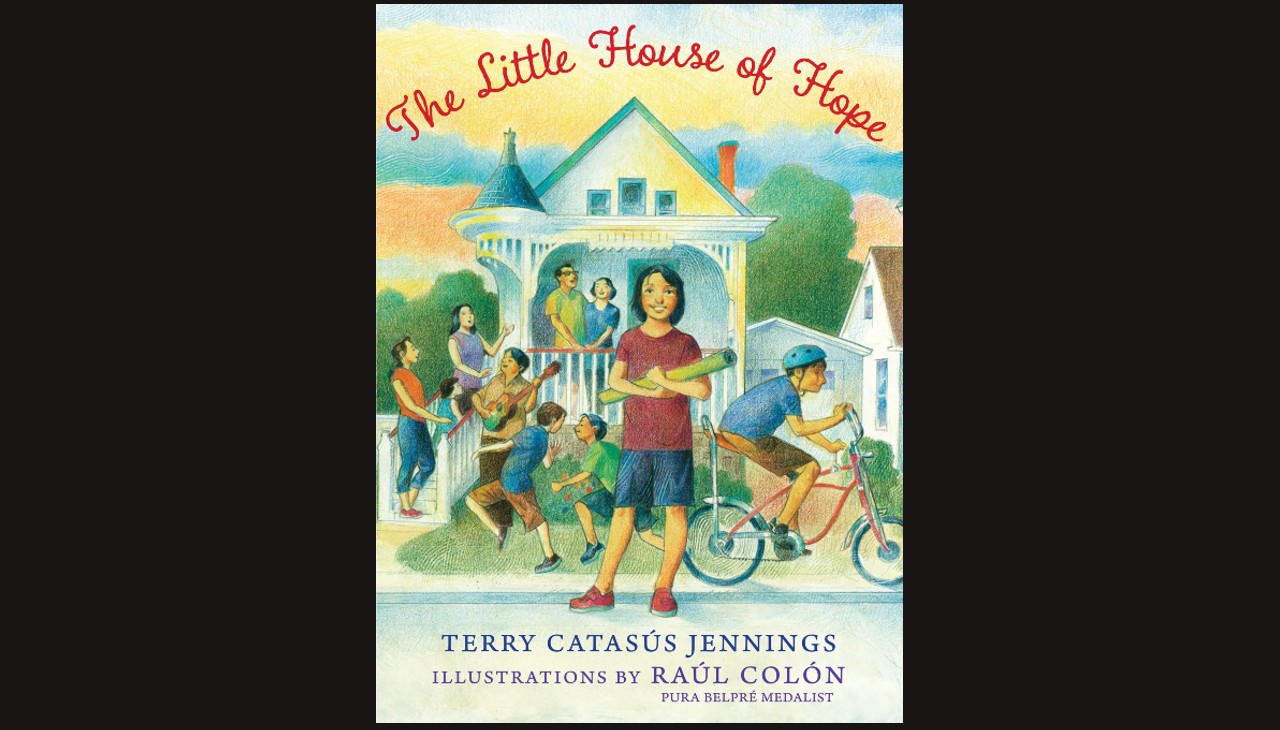
“Latinos can be heroes in their own stories”
In ‘The Little House of Hope’, Cuban American author Terry Catasús Jennings tells how immigrants can help each other settle up in a new country
When thinking about her childhood in Cuba, Terry Catasús Jennings remembers herself as a very independent kid, free to walk anywhere alone, and such a passionate reader that around fourth grade, she decided she would become a writer. “That coincided with reading 'Little Women',” she recalled in a recent interview with AL DIA News.
Eventually, Jennings achieved her dream and today she is an author of books for young readers in the U.S. Her latest book is 'The Little House of Hope' (also available in Spanish "La Casita de Esperanza") an autobiographical story of how immigrants can help each other fi nd their footing in a new country.
The book is illustrated by award-winning artist Raúl Colón and stars Esperanza, a 12-year-old Cuban girl who emigrated to the U.S. with her family and tries to settle into their new house, just like Jennings and her family did in 1961. When other immigrant families need a place to stay, that is the place to go, and Esperanza is always the fi rst to welcome them. It’s a safe place in a new land.
“With The Little House of Hope I tried to portray several of the reasons why people become immigrants, the difficulties they face when they get to the new country, and the value of a helping hand”, the author said.
When Jennings and her family emigrated from Cuba to Richmond, Virginia, her life changed. “A lot of that freedom evaporated because my parents were scared to let me go anywhere, do anything”, she recalled.
Also, it was not always easy to be the only Cuban kid around. One of her youth idols became her math teacher in high school: “She always encouraged me and treated me as a human being rather than put me down as not capable because I was an immigrant”.
So, following her steps, she studied Math and Physics at the University of Richmond. In addition, her parents would never have agreed for her to have
a career as a writer. “It wasn’t stable enough. Our fi nances were so precarious that they would have dissuaded me of the idea, and I probably would have agreed”, Jennings admitted.
However, stories always rolled around in her head, most of the times a lot better than reality. One day she wrote an essay about teaching her daughter to drive, how parent-child roles reverse the minute the child is behind the wheel of a two-ton vehicle. “Someone gave me the e-mail of the Washington Post Style section and I sent it off. They let me know they would publish it three weeks later”, she explained, recalling the first steps that led her to become a writer of children’s books.
COMMON HUMANITY
One of her first books is the Dominguita Series, a humorous chapter book series where Cuban-American third-graders have adventures being different characters from the classics. The series fulfi lled her dream “of providing a window for all children to see a Cuban-American young person as just another human being, “something that is still very necessary today”.
RELATED CONTENT
“The recent political climate has made this feeling even more prevalent. I want to reach young readers and plant the seed of our common humanity be
fore adults and life interfere with that notion”, she said. She also wants young Latinos to see that they, too, can be the heroes in their own stories”.
According to Jennings, Latinidad is so intertwined with immigration: “For many, the definition of immigration includes those who come to take our jobs, or those who come to live off the dole. They don’t understand how difficult it is to make the decision to leave your country for another country and become an immigrant. That is what I tried to portray in The Little House of Hope”, she concluded.
During the interview, Jennings recalled the hardships endured by her family upon arrival in the U.S. “We had 50 dollars for a family of four and each
one had a suitcase with clothes weighing less than 40 pounds”, she recalled. Her uncle was already in the United States and he and his family were renting a house. “They opened that house to us. They also opened it to my aunt’s brother and his family. Fourteen of us lived in the house,” she said.

Jennings lives in Reston, Virginia, and has never been back to Cuba. Her last name is very recognizable. Her uncle was in Batista’s air force (constitutional President between 1940 and 1944, and dictator between 1952 and 1959), and that’s why her father was jailed during the Bay
of Pigs invasion, in 1961.
“Relations between the U.S. and Cuba need to be super good before I will try that”, she said. However, the island is still present in her life, in her memories, in her family, in the food.
“What I really miss about Cuba is seeing it through the eyes of an adult. I would love to see my house, my school, my church, share that with my children and their spouses. I’d love to see more of the country. It’s such a beautiful country, but since I left when I was only 12, I have very limited knowledge of it”, she concludes.












LEAVE A COMMENT: